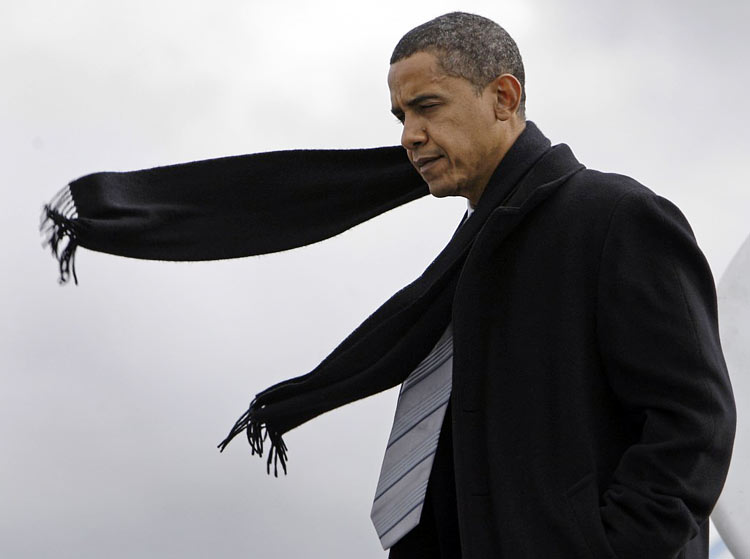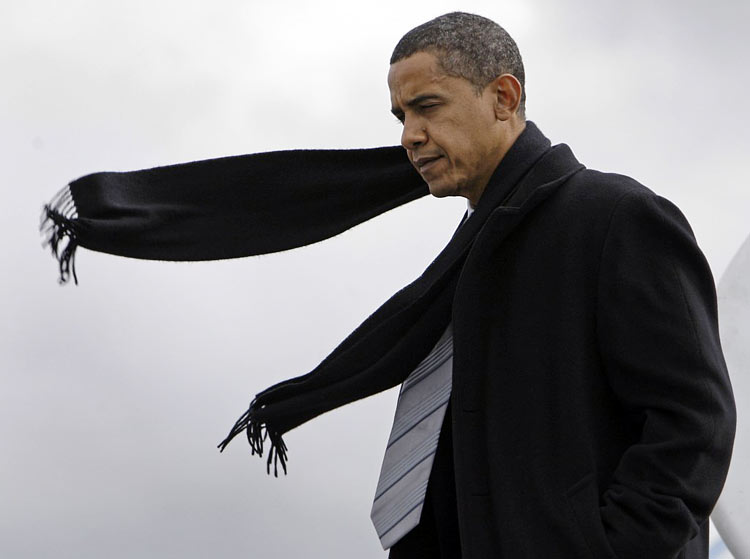 所有人都知道吸食汽油或闻其气味会有危险,但我现在也开始相信只是想象一下汽油的价格就能损害一个人的认知能力。因此,我可能要冒着牺牲脑细胞的危险来讨论这个话题。
所有人都知道吸食汽油或闻其气味会有危险,但我现在也开始相信只是想象一下汽油的价格就能损害一个人的认知能力。因此,我可能要冒着牺牲脑细胞的危险来讨论这个话题。
这里有一项测试,可以测出你是否犯了一提油价就满面愁容的错误:你相信汽油价格是一个国家总统可以控制得了的吗?很多美国人都认为这个答案是肯定的,但是任何一个受尊敬的经济学家都会告诉你,这个问题的答案是否定的。
最近,我任教的芝加哥大学布斯商学院对一组经济学家开展了一项投票试验。(我就是被试验的经济学家中的一个,其他的也都是来自顶尖大学商学院受人景仰的经济学家,且各自持有不同的政治观点。)41位经济学家都被问及是否同意以下言论:“美国过去10年间的汽油价格波动主要由市场因素导致,而非美国联邦政府的经济或能源政策。”
被提问者中没有一人否认以上观点。
原因是:石油是一个全球市场,美国只是一个大的消费者,而不是供应者。美国消费全球20%的石油,而它拥有的石油储备却只有2%。用经济术语来说,这意味着美国是“价格接受者”。美国国内石油产能虽在奥巴马政府期间有所提高,但这对全球油价的影响甚微,因为与产油国相比美国这一点点实在太少了。并且即使美国国内石油公司继续扩大生产,它们也只会卖给全球出价最高的购买者。
如果经济理论或经济学家的观点还是说服不了你,那就来看看美国的近代史吧。估计美国没有人会认为小布什不亲近石油产业,但是他当政的大部分时期油价却在持续上涨。2001年2月,小布什刚上任不久,普通汽油的平均价格是1.45美元每加仑;而截至2008年 6月,汽油价格已经上升到4.05美元每加仑。这时候,你还会认为总统或有利石油的政策能够决定石油价格吗?
的确,布什总统后期油价已经回落到了1.69美元每加仑,但这是由于全球经济下滑引起的。然而,我始终觉得用全球金融危机来换取油价下跌,这个代价太高了。
不过,共和党总统候选人仍指责是奥巴马总统的政策导致目前油价高涨。米特•罗姆尼(Mitt Romney)说奥巴马应该严惩他那三位内阁成员,因为油价无法回落是他们的失职。
(星期五,奥巴马总统仍加进实施制裁行动,限制国际市场上的伊朗石油供应。)
同时,纽特•金里奇(Newt Gingrich)承诺他能让油价降到2.5美元每加仑。然而,问题是,美国如果可以无视供给和需求相关法规,那为什么只是针对石油呢?为什么不让2.5美元也能买到1克拉钻石、一顿牛排大餐和18年藏的苏格兰威士忌呢?
尽管美国无法单边降低石油价格,但它可以通过更有效率地使用石油和开发替代能源来减少石油消费。例如,奥巴马政府已经针对汽车制造商规定了企业平均燃料经济性标准。如果消费者买的节能汽车和卡车多了,那么对汽油的需求也会减少,高油价的压力也会相应减小。但是,尽管这些政策法规能起到一些作用,却不是实现社会目标的最好方法。
更好的方法应当是逐渐提高汽油税,直到达到西欧这些国家的水平,这些国家基本都使用的是节能汽车。N. Gregory Mankiw——哈佛大学经济学家,是罗姆尼的顾问和经济专栏作家——很久以前就开始提倡这种政策了。我同意他的观点,其他经济学家也大都一致同意。
这是有根据的,芝加哥大学举行的这次经济学家调查问卷中还问到他们是否同意这个观点:“为减少温室气体排放,针对燃料的碳含量征收关税要比‘对汽车制造商规定企业平均燃料经济性标准’等政策更有效率。”
在这个问题上只有一个反对票。然而,在当前的政治环境下,逐渐提高燃油税或加大征收碳税范围——都是敏感话题,提出这种建议甚至会遭人嘲笑,因此没有一个总统竞选人敢有这种提议。至少两位总统候选人已经表示他们清楚当下的经济环境。过去,奥巴马总统和罗姆尼都承认油价上涨会有一个积极影响:对有汽车的人产生正确的激励作用,即如果油价上涨能够抵消高燃油税,那么损失也就可以抵消了。但这种明显正确的理论现在却被认为是不爱国的表现,几乎等同于在奥林匹克运动会上为美国的竞争对手喝彩一般。
困惑的美国民众对这个话题的辩论表明这已经成为一个更普遍的问题。作为选民的大众不擅长对自己的总统施加赞扬或指责。当事情发展顺利时,他们给的赞扬太多;而在事情变糟时,他们的指责声也过大。这一点在教练、CEO、父母和任何领导职位上的人而言也都适用。可是,领导虽然重要,但他们也不是万能的。
因此,若想正确地评价一位领导者,我们首先得确定该领导能够控制的因素有哪些。如果你讨厌奥巴马的医疗计划和消费者金融保护局,就一定会想尽办法对总统百般责骂;相反,如果你喜欢这些政策的话,你又会给总统很大的赞誉。最没有意义的事就是因为油价上涨指责总统,因为这方面的确是他无法控制的;但如果股价上扬或劳动力市场涨价,就不要给他赞誉了——因为他和美联储以及国会等颁布的政策措施,很有可能会对这些领域带来影响。
当美国大选那天来临,民众在投出手中那张票时应该想到最后赢得大选的人,他颁布的政策将对很多领域产生重要影响:例如,医疗、税负分配、最高法院提名以及流产权等。候选人在这些议题上的不同意见应当作为选举的标准,而不是天真地认为应该选仅能帮美国降低汽油或苏格兰威士忌价格的那个候选人做总统。
 EVERYONE knows it’s dangerous to ingest gasoline or to inhale its fumes. But I am starting to believe that merely thinking about the price of gasoline can damage cognitive processing. Thus I may be risking some of my precious few remaining brain cells by writing about that topic.
EVERYONE knows it’s dangerous to ingest gasoline or to inhale its fumes. But I am starting to believe that merely thinking about the price of gasoline can damage cognitive processing. Thus I may be risking some of my precious few remaining brain cells by writing about that topic.
Here is a one-item test to see whether you are guilty of cloudy thinking about gas prices: Do you believe that they are something a president can control? Many Americans believe that the answer is yes, but any respectable economist will tell you that the answer is no.
Consider a recent poll of a panel of economists conducted by the University of Chicago Booth School of Business, where I teach. (Disclosure: I am a member of the panel; the other respondents are well-respected economists from top universities with varying political views.) The 41 panel members were asked whether they agreed with the following statement: “Changes in U.S. gasoline prices over the past 10 years have predominantly been due to market factors rather than U.S. federal economic or energy policies.”
Not a single member of the panel disagreed with the statement.
Here is why: Oil is a global market in which America is a big consumer but a small supplier. We consume about 20 percent of the world’s oil but hold only 2 percent of the oil reserves. That means we are, in economics jargon, “price takers.” Domestic production has increased during the Obama administration, but it has had minimal effects on global prices because, as producers, we are just too small to matter much. And even if domestic oil companies further increased production, they would sell to the highest global bidder.
If you’re not convinced by economic theory or the opinions of economists, consider some recent history. Presumably, no one would call President George W. Bush unfriendly to the oil industry. Yet the price of gasoline rose steadily during most of his administration. In February 2001, just after Mr. Bush took office, the average price of regular gasoline was $1.45 a gallon. By June 2008, that price had risen to $4.05. Still think presidents and oil-friendly policies can determine oil prices?
It’s true that by the end of the Bush presidency, prices had fallen back to $1.69, as oil prices plummeted with the rest of the global economy. But I think we can all agree that a global financial crisis is too high a price to pay for cheap gasoline.
Still, Republican presidential candidates are blaming the policies ofPresident Obama for the current high level of gasoline prices. Mitt Romney has said that the president should fire three of his cabinet members for failing to get oil prices down.
(On Friday, the president moved forward in imposing sanctions that are limiting the supply of Iranian oil in world markets.)
Newt Gingrich, meanwhile, has promised us $2.50-a-gallon gasoline. But if we can suspend the law of supply and demand, why stop with gasoline? Why not $2.50 for one-carat diamonds, steak dinners and 18-year-old Scotch whiskey?
Although the United States cannot unilaterally lower the price of oil, it can reduce its consumption, by using oil more efficiently and by developing alternative sources of fuel. For example, the Obama administration has raised the corporate average fuel economy standards imposed on automakers. If consumers buy more fuel-efficient cars and trucks, demand for gasoline falls, as does the burden imposed by high gas prices. But while such rules help, they are not the best way of achieving societal goals.
A better approach would be to gradually raise the gasoline tax to levels similar to those in Western Europe, where fuel-efficient cars are the norm. N. Gregory Mankiw — the Harvard economist who advises Mr. Romney and is a fellow contributor to the Economic View column — has long advocated such a policy. I agree with him, as do most other economists.
For evidence, note that the economists in that same University of Chicago poll were asked whether they agreed with this statement: “A tax on the carbon content of fuels would be a less expensive way to reduce carbon-dioxide emissions than would a collection of policies such as ‘corporate average fuel economy’ requirements for automobiles.”
On this question, there was just a single negative vote. Yet in our current political climate, making the sensible suggestion that we gradually raise the tax on gasoline — or impose a broader system of carbon taxes — is ridiculed, and no one running for president can safely make such a proposal. At least two of the candidates have shown that they understand the underlying economics. In the past, both President Obama and Mr. Romney have acknowledged that higher gas prices have an upside: they give car owners the right incentives, and if the high prices stem in part from higher fuel taxes, the deficit can be trimmed. But such obviously true statements are now considered almost unpatriotic, equivalent to cheering against the U.S.A. in the Olympics.
THE confused public debate on this topic is representative of a more general problem. The voting public is not very good at attributing credit and blame to presidents. They get too much credit when things go well and too much blame when things go badly. The same applies to coaches, C.E.O.’s, parents and anyone else in charge. Leaders are important but not omnipotent.
So, to evaluate a leader, we must determine the factors over which that leader has a modicum of control. If you hate the Obama health care program and the Consumer Financial Protection Bureau, by all means give the president a big share of the blame. And if you love them, give him some credit. What makes no sense is to blame the president for rising gas prices, where he has virtually no control, but not to give him some credit for rising stock prices and an improved labor market, domains where his policies — along with those of the Federal Reserve and Congress — are more likely to have had an effect.
When we make our choice on Election Day, we should consider that the winner will have an important impact on policies in many areas: health care, distribution of the tax burden, Supreme Court nominations, and abortion rights. The candidates’ differences on those issues should be driving our decision, not the wishful thinking that a president can simply lower the price of gasoline. Or Scotch, alas.
 所有人都知道吸食汽油或闻其气味会有危险,但我现在也开始相信只是想象一下汽油的价格就能损害一个人的认知能力。因此,我可能要冒着牺牲脑细胞的危险来讨论这个话题。
所有人都知道吸食汽油或闻其气味会有危险,但我现在也开始相信只是想象一下汽油的价格就能损害一个人的认知能力。因此,我可能要冒着牺牲脑细胞的危险来讨论这个话题。

 EVERYONE knows it’s dangerous to ingest gasoline or to inhale its fumes. But I am starting to believe that merely thinking about the price of gasoline can damage cognitive processing. Thus I may be risking some of my precious few remaining brain cells by writing about that topic.
EVERYONE knows it’s dangerous to ingest gasoline or to inhale its fumes. But I am starting to believe that merely thinking about the price of gasoline can damage cognitive processing. Thus I may be risking some of my precious few remaining brain cells by writing about that topic.